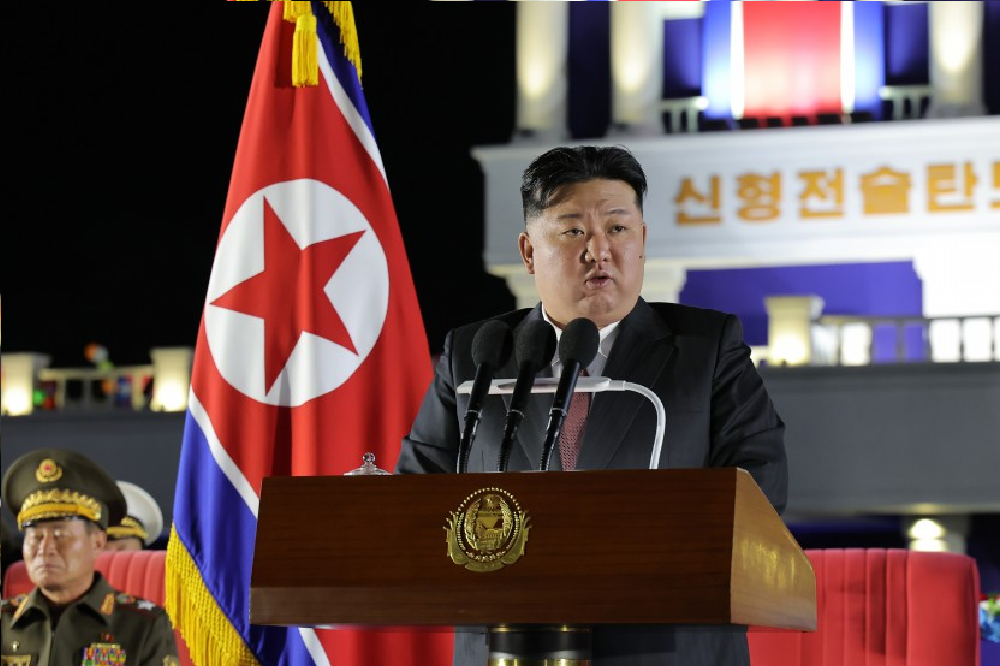North Korea has voiced strong criticism towards the U.S., accusing it of plotting a “nuclear war plan” due to recent efforts by Washington and Seoul to enhance nuclear deterrence in the region. A statement from North Korea’s Foreign Ministry, reported by the state-run Korean Central News Agency, warned the U.S. and its allies could face “catastrophic consequences” from their “provocative acts.”
The ministry emphasized that North Korea is prepared to take “the most necessary measures” to safeguard its sovereignty and ensure both regional and global peace. Tensions on the Korean Peninsula are currently at a peak, attributed to North Korea’s missile tests, military collaboration with Russia, and the South’s propaganda campaigns directed towards the North.

Korean Central News Agency
Importantly, North and South Korea remain technically in a state of war, having never signed a formal peace treaty since 1953. The ministry specifically critiqued the recent U.S.-South Korea military exercise “Iron Mace 24,” arguing it serves more than just a training purpose and is indicative of a broader nuclear strategy aimed at the North.
Since the establishment of the Nuclear Consultative Group in April 2023, North Korea claims that Washington and Seoul have been orchestrating a nuclear war plan directed at Pyongyang. They assert that the “Iron Mace” exercises mark the transition from planning to “actual execution.”
According to U.S. and South Korean officials, the Nuclear Consultative Group was founded to bolster defenses against North Korea and enhance international nuclear nonproliferation. The U.S. employs various measures for extended deterrence, including deploying thousands of troops in South Korea and assuring a nuclear response if necessary.
North Korea accused the U.S. of dragging allied nations into a nuclear pact while escalating the already tense security conditions on the peninsula. Vipin Narang, the acting U.S. assistant defense secretary for space policy, highlighted the need for an assertive nuclear posture in response to threats from adversaries such as China and North Korea. He stressed that the U.S. remains vigilant about North Korea’s military advancements, particularly as its ties with Russia deepen.
Amid these developments, a bipartisan report to Congress described the current global security situation as the most perilous since World War II, urging increased defense spending and enhancements to U.S. military capabilities. Meanwhile, South Korea’s government has established a new “Strategic Command” to counter potential nuclear threats from the North.
